Texas is generally a state that respects the firearm rights of all of its citizens. That said, every person in the Lone Star State needs to be aware that owning a firearm still involves certain penalties for violating some of the laws regulating their usage.
People who are generally prohibited from owning firearms in Texas include individuals with felony convictions, those convicted of family violence (domestic violence) offenses, and people with restraining orders against them. Anybody accused of being in unlawful possession of a firearm will want to be quick to retain legal counsel for help fighting the charges and possibly clearing their name.

Unlawful Possession of a Firearm Defense Lawyer in Denton, Frisco, Lewisville, Flower Mound, TX
Contact the Law Offices of Richard C. McConathy today for a consultation about your alleged firearm possession offense in Denton, Frisco, Lewisville, Flower Mound, and surrounding areas of Denton County, Texas.
The Law Offices of Richard C. McConathy regularly handles gun rights cases and can fight your criminal charges, possibly seeking a reduction in or dismissal of all criminal charges. You can call (940) 222-8004 or contact us online to let our firm review your case and talk about all of your legal options during a free consultation.
Unlawful Possession of a Firearm Charges in Texas
Texas Penal Code § 46.04(a) establishes that an individual who has been convicted of a felony commits unlawful possession of a firearm offense if they possess a firearm after a conviction and before the fifth anniversary of their release from confinement following a felony conviction or their release from supervision under community supervision, parole, or mandatory supervision, whichever date is later; or after the same period, at any location other than the premises at which the person lives. Under Texas Penal Code § 46.04(a-1), an individual who is a member of a criminal street gang, is defined by Texas Penal Code § 71.01 as being three or more people having a common identifying sign or symbol or an identifiable leadership who continuously or regularly associate in the commission of criminal activities, commits unlawful possession of a firearm offense if they intentionally, knowingly, or recklessly carry on or about their person a handgun in a motor vehicle or watercraft.
Texas Penal Code § 46.04(b) establishes that a person who has been convicted of an offense under Texas Penal Code § 22.01 relating to Class A misdemeanor assault and involving a member of their family or household, commits an offense if they possess a firearm before the fifth anniversary of the later of the date of their release from confinement following conviction of the misdemeanor; or the date of their release from community supervision following misdemeanor conviction.
As it relates to Texas Penal Code § 22.01, a person commits an assault offense if they intentionally, knowingly, or recklessly inflict bodily injury upon another person, including their spouse, intentionally or knowingly threaten another person with imminent bodily injury, including their spouse, or intentionally or knowingly cause physical contact with another person when such person knows or should reasonably believe that the other person will regard such contact as offensive or provocative. An assault offense is a Class A misdemeanor, except that the crime is a third-degree felony when the offense is committed against a person the alleged offender knows is a public servant while they are lawfully discharging an official duty, or in retaliation or on account of an exercise of official power or performance of an official duty as a public servant, or a person whose relationship to or association with the alleged offender is a dating relationship, family—which includes people related by consanguinity or affinity, individuals who are former spouses of each other, individuals who are the parents of the same child, without regard to marriage, and a foster child and foster parent, without regard to whether those individuals reside together—or members of the same household, meaning a unit composed of persons living together in the same dwelling, without regard to whether they are related to each other.
It is also a third-degree felony if it is shown on the trial of the offense that the alleged offender had been previously convicted of an offense under the chapter for assaultive offenses, criminal homicide, or Texas Penal Code § 20.03 relating to kidnapping, Texas Penal Code § 20.04 relating to aggravated kidnapping, Texas Penal Code § 21.11 relating to indecency with a child, or Texas Penal Code § 25.11 relating to continuous violence against the family against a person whose relationship to or association with the defendant is described by Texas Family Code § 71.0021(b), 71.003, or 71.005, relating to a dating relationship, family, or members of the same household, or a crime is committed involving intentionally, knowingly, or recklessly impeding the normal breathing or circulation of the blood of a person by applying pressure to that person’s throat or neck or by blocking the person’s nose or mouth.
Under Texas Penal Code § 46.04(c), a person, other than a peace officer actively engaged in employment as a sworn, full-time paid employee of a state agency or political subdivision, who is subject to a protective order issued under Texas Family Code § 6.504 or Chapter 85, under Texas Code of Criminal Procedure § 17.292 relating to a magistrate’s order for emergency protection or Subchapter A, Chapter 7B of the Texas Code of Criminal Procedure, or by another jurisdiction commits an offense if they possess a firearm after receiving notice of the order and before the expiration date of the order.
An offense under Texas Penal Code § 46.04(a) is a third-degree felony. An offense under Texas Penal Code § 46.04(a-1), Texas Penal Code § 46.04(b), or Texas Penal Code § 46.04(c) is a Class A misdemeanor.
Unlawful Possession of a Firearm Penalties in Texas
Unlawful possession of a firearm crime are punishable as follows:
- Class A Misdemeanor — Up to one year in jail and/or a fine of up to $4,000
- Third-Degree Felony — Up to 10 years in prison and/or a fine of up to $10,000
Aggravated consequences may be imposed for people deemed to be habitual felony offenders under Texas Penal Code § 12.42. When an alleged offender was previously convicted of a felony other than a state jail felony, they may be punished for a second-degree felony, which involves a sentence of up to 20 years in prison and/or a fine of up to $10,000.
Denton County Unlawful Possession of a Firearm Resources
Texas Border Crime and Other Criminal Activity Report — View this 2021 Texas Department of Public Safety (DPS) report about the 508 weapon offenses in Texas that year. Denton County had 810 total offenses that year. In 2020, the state reported 368 weapon crimes, and in 2019 involved 329 such offenses, so the total has increased each of the past three years.
Young v. State, 752 S.W.2d 137 (1988) — Louis Dee Young, Jr. appealed a conviction for possession of a firearm by a felon after a jury assessed punishment, enhanced, at life in the Texas Department of Corrections. Young contended that the evidence was insufficient to prove “possession” of a handgun as alleged in the indictment and was insufficient to prove that he had a prior conviction involving violence and threatened violence to a person, but the Dallas Court of Appeals of Texas found no merit in either of those challenges to the sufficiency of the evidence. In his first point of error, Young contended that the trial court erred in failing to grant his timely motion for a mistrial because of the prosecutor’s prejudicial jury argument at the guilt or innocence stage of the trial injecting harmful unsworn testimony before the jury, and the Court of Appeals did agree with Young that the prosecutor in his jury argument tried appellant for a fictitious attempted offense against police officers which only occurred in the vivid imagination of the prosecutor. “Offenses found in the vivid imagination of the prosecutor with no support in the record are outside the scope of proper jury argument. Proper jury argument must fall within one of four general areas: summation of the evidence; reasonable deduction from the evidence; answer to argument of opposing counsel; and pleas for law enforcement,” the Court wrote. Because the prosecutor’s argument in the case did not fall within one of the four general permissible areas and Young was charged with possession of a firearm by a felon, not attempted capital murder or resisting arrest, the Court of Appeals concluded that the prosecutor’s remarks were improper and constitute error, reversing and remanding the case.
Find A Denton County Defense Attorney for Unlawful Possession of a Firearm Charges | Law Offices of Richard C. McConathy
If you were arrested for unlawful possession of a firearm anywhere in Denton County, make sure to secure legal representation for yourself without delay. Your first call should be to The Law Offices of Richard C. McConathy.
Our firm has handled various alleged firearm violations with great success and we will work to help you avoid many of the steepest penalties associated with convictions. You can have us look at your case and talk to you about what can be done when you call (940) 222-8004 or contact us online to set up a free consultation.


